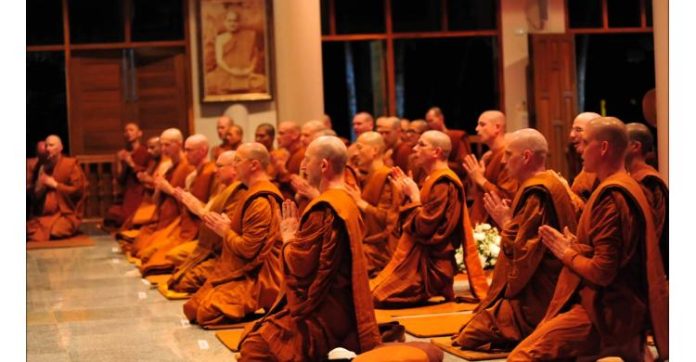We always talk about yoga and breathing, a beautiful combination for immersing deep into a yoga asana but what about breathing and chanting, let’s hear it from Chitra Ganesh, Vedic chanting and yoga teacher, in the tradition of Krishnamacharya and TKV Desikachar.
Chat on the Mat With Chitra Ganesh
hmy : What exactly is a mantra and how we are supposed to use it?
Chitra Ganesh : In the indian tradition, the Vedas are a vast collection of hymns that have been believed to be revealed to ancient Indian rishis while they were in a deep meditative state. Any section of the Vedas is mantra. A mantra is a collection of sounds which when, pronounced in the right manner and with the right intention, can produce positive vibrations in our body. Chanting mantras can also bring about a deep connection with tradition as they have been orally transmitted for thousands of years. Acharyas like Krishnamacharya considered chanting a very powerful tool in the yogic path, on par with other tools like asana or pranayama. One can practice a combination of these tools as well.
hmy : How does chanting helps in meditation and managing the mind?
Chitra Ganesh : Meditation or dhyanam is the ability to keep the mind focused and silent for an extended period of time. Chanting prepares the mind for meditation by enhancing concentration. Chanting mantra requires a lot of attention to detail, thereby bringing the mind to focus. Vedic chants are “shruti” or “that which was heard.” They are bound by strict rules, thus maintaining consistency and a respect for the tradition. Some examples of rules include, pronunciation, notes, and punctuation. Any mistake made during recitation could alter its meaning and purpose. In the tradition of Krishnamacharya, the student listens to the teacher carefully and repeats each line twice. In case of any mistakes, the process is repeated. When one has learned a chant perfectly, then the practice can be done softly and then, in the highest state, silently.
hmy : Is it really important to get the words right while chanting mantra?
Chitra Ganesh : Yes, it is important. Since Vedic mantras are bound by rules of pronunciation, not doing so correctly can alter the meaning of a chant. Sanskrit alphabets also need to be pronounced from specific places in the mouth. Therefore, it is important to learn from a teacher.
hmy : We all know, Sanskrit is not easy to recite, which mantra would you suggest for a beginner to pick and why?
Chitra Ganesh : It is hard to generalise a particular mantra for beginners but it can be said that they can learn chants that contain short lines. For example, “Om Ayurdhehi.” As with every other practice, one needs to practice slowly and steadily. In the Indian tradition, the pranava mantra or Om is said to be the very embodiment of the divine consciousness (Brahman). So realised masters emphasise that if one cannot chant any other mantra, one can at least chant the pranava mantra. But chant it with respect, reverence and with contemplation of its meaning.
hmy : How does chanting help with your breathing?
Chitra Ganesh : Any form of sound like speech, chanting and singing is produced on an exhale. There are rules in Vedic chanting that automatically regulate your breath and make it more efficient. For example, a breath cannot be taken in the middle of a word, or between connected words; some syllables are held for one count, and others for 2 or three counts. Another rule, balam or force requires some alphabets to be pronounced softly and some with aspiration. So there is constant breath work happening. In addition, one needs to maintain a balanced posture while chanting which also enhances the functioning of the breath.
If you are interested to learn more about Chanting, then connect with Chitra Ganesh for her online classes.
You can also listen her chanting videos on hellomyyoga youtube channel.



